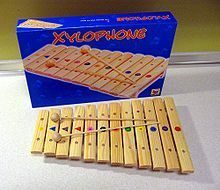Example of Quasireflex Verbs
Spanish Classes / / November 13, 2021
The quasireflex verbs They are transitive verbs that can be used with reflexive forms, that is, the action of the verb is carried out on the subject of the sentence.
In our language, one of the main divisions of verbs is the division between reflexes and transitives.
Transitive verbs are those that express an action that a subject performs on an object:
- José buys mangoes.
- Ana sews clothes.
The intransitive or reflexive verbs are those that express actions that fall on the subject who performs them. In some cases, the verb is accompanied by a pronominal construction that reinforces the idea that the action falls on the person who performs it:
- Maria sleeps - Maria falls asleep.
- I bathe.
Around 1841, the Venezuelan writer, politician and revolutionary Andrés Bello (1781-1865), proposed the creation of a linguistics and grammar of Spanish for the inhabitants of the American continent, and in which he established many name changes to the grammatical figures and verbal conjugation of Castilian classic. This "Americanized" grammar was adopted in many places in Latin America.
One of these changes is to change the name to intransitive verbs, naming them reflexes, and creating an intermediate category, quasi-reflex verbs, which are transitive verbs that function as intransitive.
To identify a quasireflex verb, we must identify if the verb is transitive, that is, its function is normally to express the action of the subject on an object:
- Cook.
- To wash.
- Clean.
A pronominal complement is added to these transitive verbs. This pronominal complement complements the action of the verb to express that the action of the subject is "for himself":
- Jorge cooks (he cooks for himself).
- Cats wash (wash themselves).
- You clean yourself (you clean yourself).
It is important to note that in these sentences there is no direct object, precisely because in sentences with quasi-reflex verbs the action of the verb falls on the subject. If there is a direct object, then the pronominal object works as an indirect object and the verb is not a quasi-reflex:
- Jorge cooks soup (Jorge cooks soup for himself)
- Cats wash their paws (Cats wash their paws)
- You wash your clothes (You wash your clothes for you)
These pronominal complements can also be written as suffixes that complement the verb:
- Jorge is going to cook.
- The cat is going to wash.
- Get clean.
Sentences with these verbs can have circumstantial complements and indirect complements:
- Jorge cooks in his apartment.
- Cats wash in the sun.
50 examples of sentences with quasi-reflex verbs:
- Ana he walks by the park.
- I will walk away a bit.
- The children They are arranged before eight.
- The branches they break.
- The child it got dirty.
- I will stain me.
- Teresa it is adored too.
- Tea you got rid.
- Them they repented.
- The girl is adorned too.
- Juan jose wakes up early.
- My family he settled In this city.
- The Cook it burned.
- The lamp it turned off sometimes.
- Tea you encouraged.
- Me I train daily.
- Tea you imagined So?
- Them they understand each other.
- Only you you understand.
- I do not I explain.
- Moon lights up.
- Spring is painted.
- The salt it dissolves.
- The money it is spent Quick.
- The repair It was delayed.
- The time no it stops.
- I turned on upon hearing it.
- Tea you scared.
- Alberto it was painted.
- Lupe hides under the bed.
- The holidays its over today.
- The motor she stopped.
- My sister she was glad.
- I also I was glad.
- Them they got mad.
- Yesterday I cleaned early.
- The human body it repairs itself.
- Milk it burned.
- The rail I was defeated.
- Alexandra was cured in three months.
- Micaela lies down early.
- The door it opens.
- Juan wanted stop.
- At Juan's school toiled.
- Erick is known well.
- Can I make a mistake.
- I do not I hate myself.
- I rent for parties.
- Marine scrubbed.
- Your aunt is deceived.



